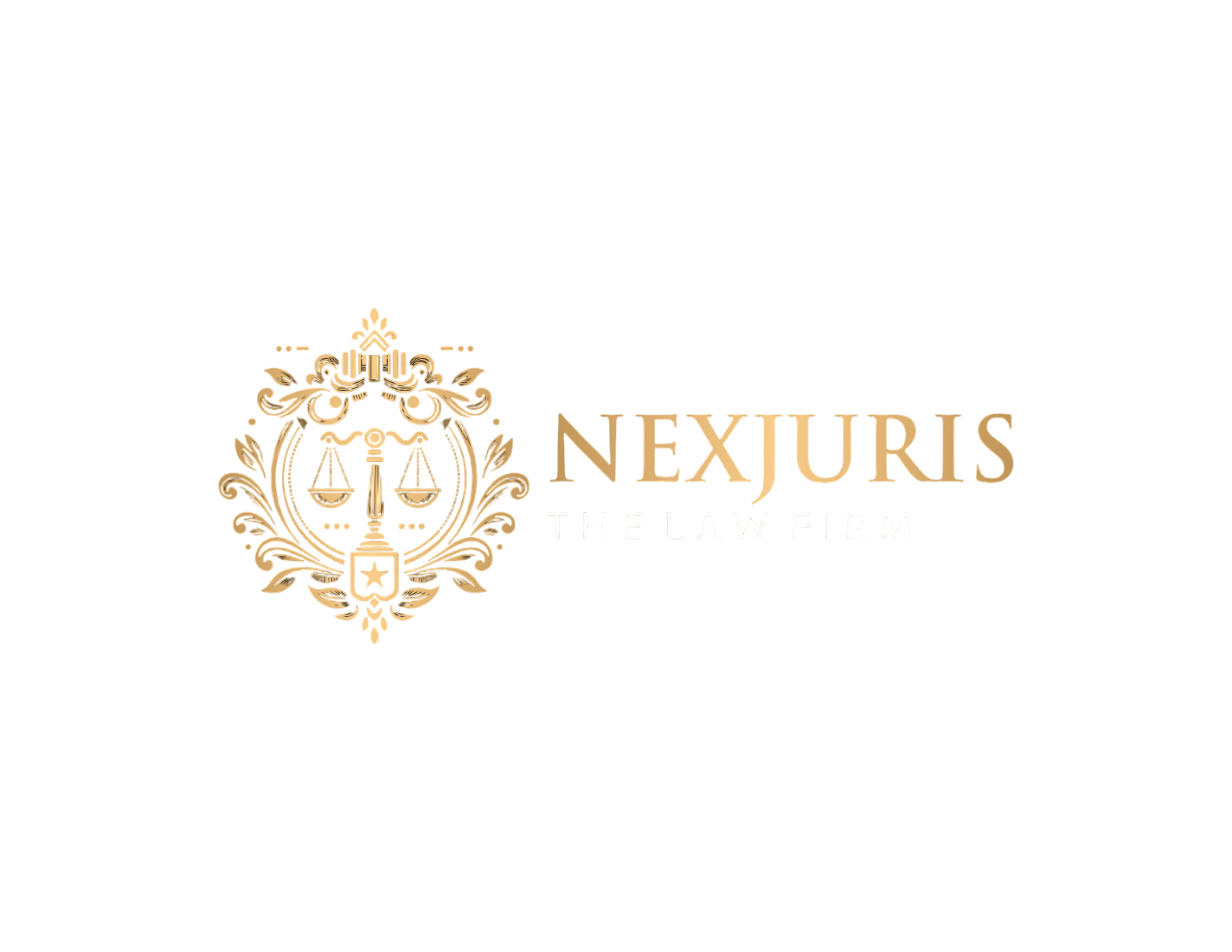Trademark Objection
Trademark Objection
At Nexjuris, we specialize in providing expert legal assistance for handling trademark objections. Our team of experienced trademark attorneys offers comprehensive services to address and overcome objections raised by the trademark registry. With a deep understanding of trademark law and a commitment to protecting your brand, we ensure that your trademark application progresses smoothly through the registration process.
Grounds of Trademark Objection
The Trademarks Registry can raise an objection on the absolute grounds and/or relative grounds of refusal as enshrined under Section 9 and 11 of the Trademarks Act, 1999, respectively. It is also to be noted that there are instances when the Registry raises an objection in any application on technical grounds. For records, some of the objections raised by the Registry are mentioned herein below:
Lack of Distinctiveness
Section 9(1) (a) of the Trade Marks Act, 1999 defines that the marks which are devoid of any distinctive character do not qualify for registration. Through this provision, it can be inferred that the marks will qualify for registration if it is capable of distinguishing the goods or services of one person from those of others for which, there must be some inherent qualities or distinguishing characteristics in the mark itself or whether the mark has acquired a distinctive character as a result of its use.
Descriptive Marks
Descriptive marks are primarily the marks which consist of various words that indicates the characteristics or qualities associated to the goods or services to which they are applied. In general, the trademarks which are merely descriptive and has not acquired any distinctiveness are not easily protected or accorded trademark rights.
Similarity to Existing Marks
The objection can also be raised by the Registry when an identical/deceptively similar mark to the applied mark has already been registered before the Registry in the register of Trademarks.
Prohibited Marks
Prohibited marks are merely a combination of words, terms, or symbols which are prohibited by law to be considered as registered for protection. As per the Indian Trademarks law, Section 9, 13 and 23 of the Trademark Act, 1999, specifically deal with prohibition of such marks to be registered as a trademark and provide details therein.
Use of Generic Terms
Generic terms as a brand are not considered distinct enough for trademark protection because these terms are mainly the words or symbols that indicates what type of product or service is being offered under the applied mark. However, generic terms can also be considered for trademark registration provided the mark has acquired secondary meaning through widespread and continuous use throughout the country, which makes it a distinctive coined term.
Incorrect Classification
Incorrect classification of goods leads to a trademark objection. In such a scenario, the Applicant is required to delete/amend the respective goods and services by filing the requisite form before the Registry as all the goods and services must be in compliance with the Nice classification.
Documents Required for Responding to Trademark Objection
While preparing a response to the Examination Report issued in any application, we would require separate documents on a case-to-case basis. In general, we only require an executed copy of the Power of Attorney in our favour to proceed with drafting and filing of the Response.
However, in some cases, when the objection is raised on the grounds of non-distinctiveness and/or descriptiveness, we would also require the documents to show proof of the widespread use of the mark from the client including the document of any prior registration, necessary approvals, copy of the executed affidavits, financial statements etc.
How to Respond to a Trademark Objection
Step 1: As a first step, we will thoroughly review the objections raised by the Registry and understand the nature of objections raised.
Step 2: We will prepare a detailed strategy to overcome the objection raised by the Registry.
Step 3: We will draft a response to the Examination report by addressing each of the objections specifically in a clear and concise manner in support of the application. In case the objection is raised basis of the non-distinctiveness and/or descriptive nature of the mark, we will also be furnishing the proper documents evidencing the use of the mark in order to show that the mark has acquired distinctiveness and goodwill. In addition to the submissions, we will also include relevant judicial pronouncements in support of the use and registration of the mark.
Step 4: Once the response is finalized, the same will be filed along with the necessary annexures before the Registry and within the stipulated timeframe.
Step 5: Subsequently, we keep a regular check on the status of the application and apprise you of any further correspondence/notification from the Registry in the matter.
Step 6: If required, our team of experts will also be ready to attend the hearing and present oral arguments before the Registry and apprise you of the outcome.
Experienced Team
NexJuris stands among the leading corporate law firms in India, driven by the strength and expertise of our exceptional legal team. We firmly believe that our success is rooted in the quality of our people. Our founding principle has always been to bring together the most skilled corporate lawyers at our headquarters in Delhi, while also collaborating with top legal minds across India and globally. This structure allows us to seamlessly manage even the most intricate transactions. Our unwavering commitment to the highest standards of professional ethics and client service has earned us a trusted reputation in the corporate legal landscape.
Industry Experience
With a strong foundation rooted in Delhi, NexJuris has successfully extended its commercial law services across India and internationally. Our headquarters in the capital has served as a strategic base, allowing us to build deep institutional knowledge and strong governmental networks. NexJuris has played a pivotal role in advising government bodies on a wide range of legal and policy matters. As one of the few corporate law firms in India with significant experience in interpreting and drafting complex policy frameworks, we are uniquely positioned to navigate regulatory landscapes and support impactful legal reform.
Client-Centric Approach
At NexJuris, we follow a client-centric approach that demands the highest standards of legal expertise, technical precision, and service excellence. Our commitment to delivering accurate, dependable, timely, and cost-effective legal solutions is grounded in international best practices, yet personalized for each client. Our commercial law experts work as an integral part of our client’s team—understanding their business, challenges, and goals as our own. We recognize that every client brings unique needs and concerns, and we remain dedicated to pursuing their objectives with diligence, strategy, and integrity.
Cost-Efficient
We make sure that our fee structure and the legal costs involved are very transparent and predictable for our clients. We believe that client relationships are based on trust and a sense of common purpose and we never falter on our promise making us one of the best corporate law firms in India. Our priority has been to deliver the best legal & business solutions and our fee arrangements are tailored to the needs of the client, the client’s goals, and the nature of the matter.
Frequently Asked Questions
1. What does corporate commercial law mean?
Corporate and commercial legal practice includes a wide range of legal issues when it comes to drafting commercial contracts and agreements. It broadly entails all corporate legal work during the entire lifecycle of the company. This also includes M&A, transactional advisory along with a broad range of practice areas such as franchising, intellectual property and sometimes litigation.
Corporate and commercial legal practice includes a wide range of legal issues when it comes to drafting commercial contracts and agreements. It broadly entails all corporate legal work during the entire lifecycle of the company. This also includes M&A, transactional advisory along with a broad range of practice areas such as franchising, intellectual property and sometimes litigation.
2. What are the types of corporate laws?
Corporate law is the body of laws, rules, regulations and practices that govern the formation and operation of corporations. It’s the body of law that regulates legal entities that exist to conduct business.
3. What are the advantages of hiring a corporate lawyer?
You need a lawyer to help you set up your chart of accounts, review your numbers periodically, and prepare all of your necessary central, state and local tax returns.
4. Why choose Nexjuris as your corporate law firm?
Nexjuris commercial corporate practice has both the in-depth knowledge of business laws and corporate finance as well as the practical advantage of execution into effective compliance and regulatory agreements covering distribution agreements, labor, and employment, joint ventures, etc.

